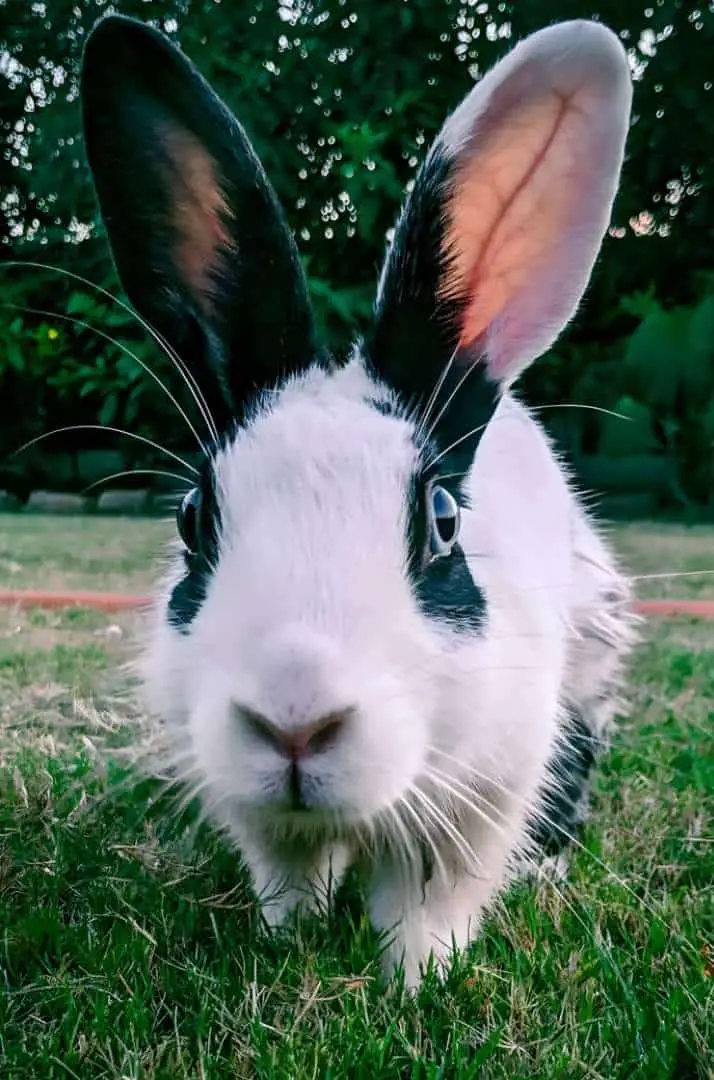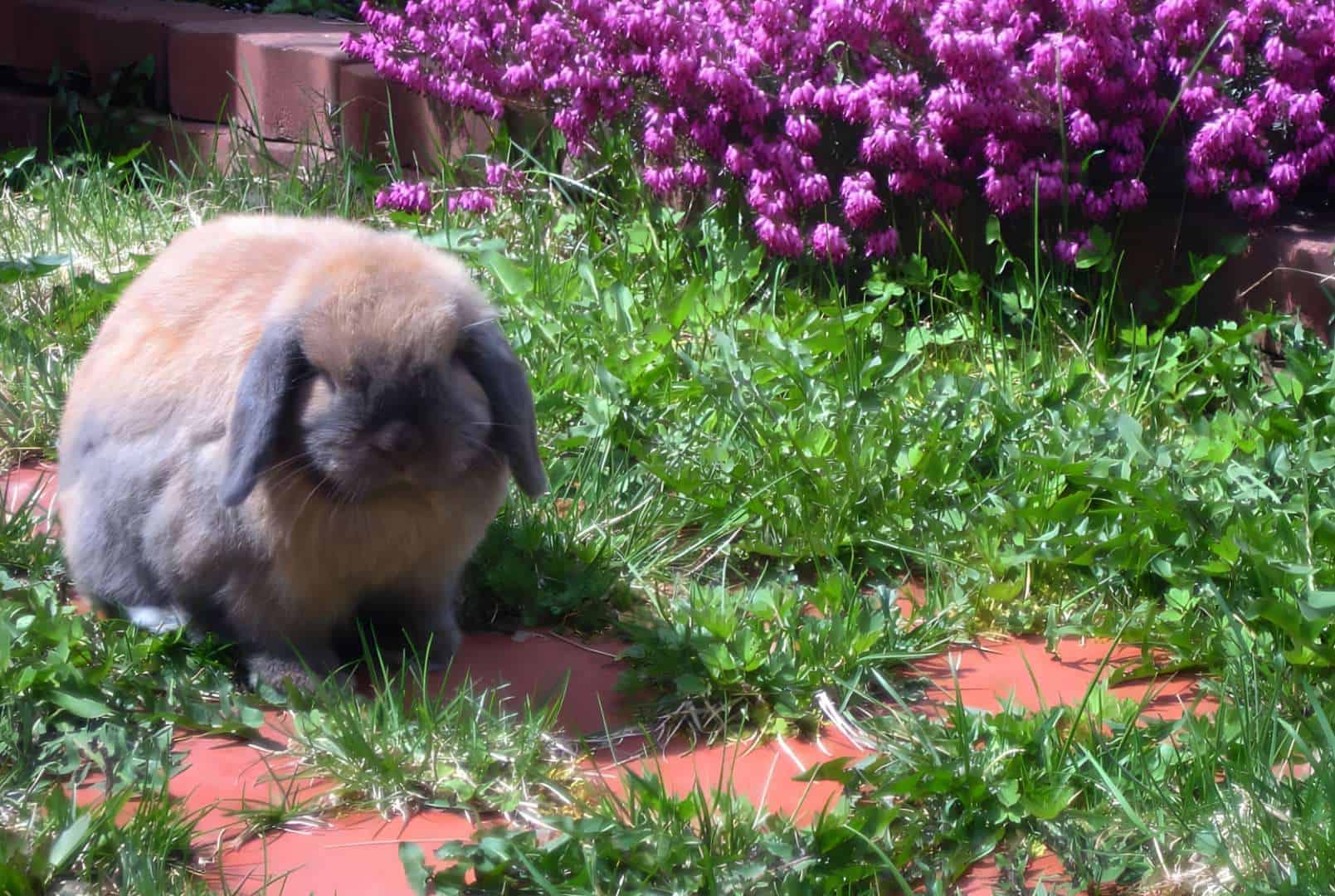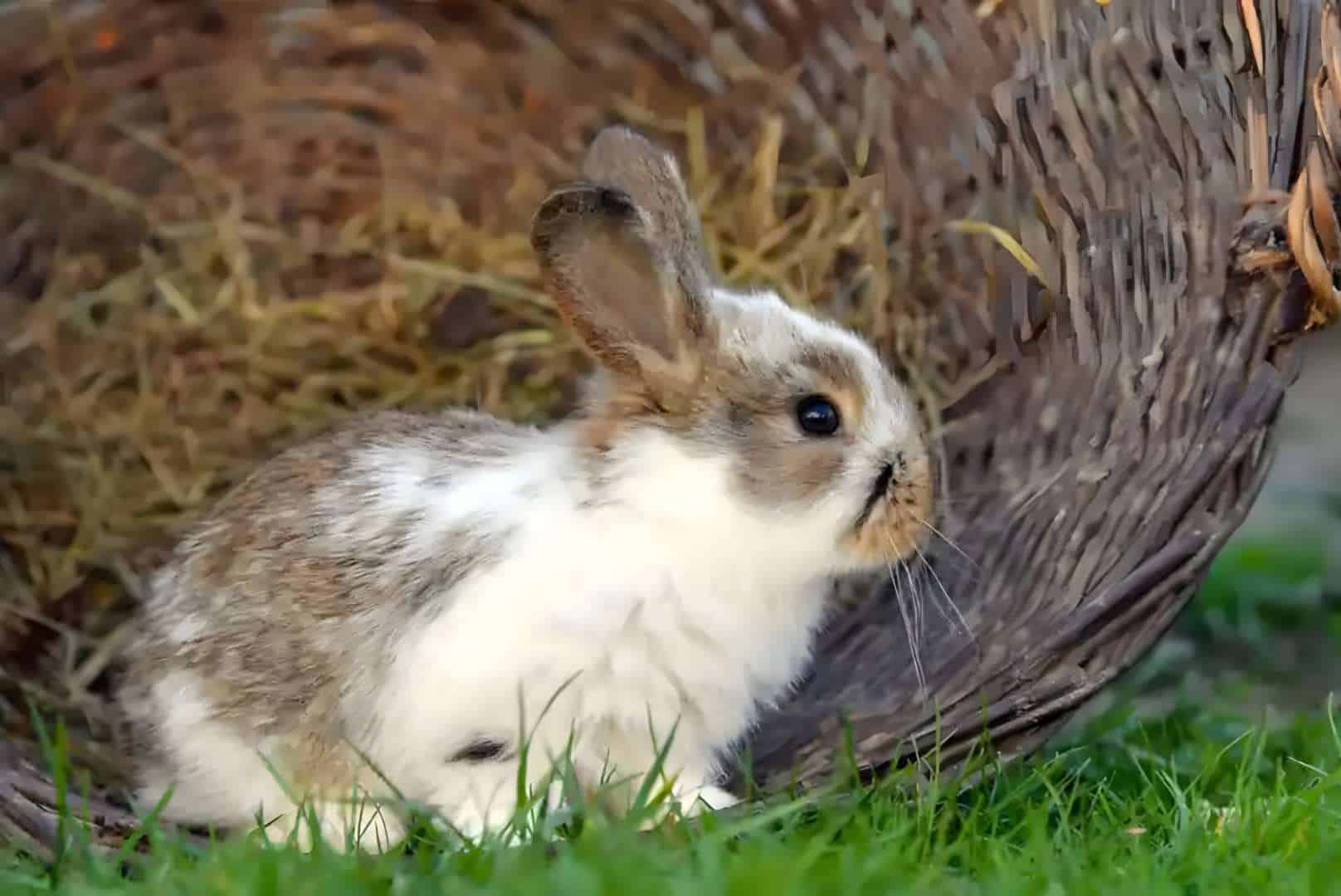Most pet rabbits live in cozy areas inside their owners’ homes. But what if there’s not enough space indoors or a family member has allergies? Can rabbits live outside? Can they survive outdoors all year round? Read on to discover more information about raising bunnies outdoors.
Can Rabbits Stay Outdoors?
If it’s not feasible to let your bunnies stay indoors, then don’t worry because they can live outside. A rabbit’s natural habitat is outdoors, so they can adjust reasonably well as long as they are comfortable and safe from harm.
Having a few bunny friends can also help them flourish outside of your home.
What are the advantages of raising rabbits outside?
- Rabbits can thrive in their natural habitat: The outdoors may be a wild rabbit’s natural home, but even domestic rabbits can still adapt to living outside. You need to provide them with a cozy resting area and monitor their wellbeing regularly.
- Rabbits can get all the exercise they need: To keep a bunny healthy and robust, it needs a play area three times the size of its shelter. It is possible to accommodate this set-up outside than inside.
- Rabbits can dig and chew to their hearts’ content: Bunnies enjoy digging and chewing, but they are restricted from doing these activities indoors since they may damage things inside your home. On the other hand, rabbits can dig and chew all they want when they’re outside. However, you’ll need to ensure that the area is secured to prevent your rabbit from escaping or eating toxic plants.
What are the disadvantages of raising rabbits outside?
- Rabbits can be vulnerable to predators: Your furry companion can be tempting prey to other animals such as raccoons, cats, dogs, foxes, eagles, and hawks. Even if it can retreat safely to its hutch, the rabbit can get easily frightened by the sound, smell, or sight of a predator nearby. This fear can cause them to get stressed, or worse, get a heart attack.
- Rabbits are more prone to loneliness outside: When your rabbits are housed outside, the chances for you or any family member to play with them decreases. The interaction may not be as convenient compared to when they are inside. Bunnies are very social animals, so they can get unhappy and withdrawn unless they have other rabbit friends outside with them.
What are the risks of rabbits living outside?
It would be best to be mindful of the following dangers of raising your rabbits outdoors before preparing their shelter. Knowing the risks will allow you to anticipate potential problems and eliminate any possible source of harm or stress.
5 Risks of Raising Rabbits Outside
- Escaping: Rabbits are natural diggers, so there’s a big chance that they’ll dig their way to freedom. If your pet’s shelter is on top of grass or soil, it is easier for them to escape by burrowing through the dirt. Surrounding its area with mesh wire that reaches underground can keep your bunny safely inside its home.
- Predators: Domesticated rabbits can’t protect themselves from predators the way their wild counterparts can. Bunnies are vulnerable to attacks by other animals such as dogs, cats, hawks, foxes, and raccoons.
- Weather: Rabbits find extreme temperature and rainy weather challenging. However, structural modifications and special provisions can protect them from the elements.
- Toxic Plants: Rabbits will graze on any vegetation that is available to them. So, if they’re free to roam in the garden or their run is surrounded by plants, you need to ensure that the greenery is safe for them to eat. Here’s a list of plants that are safe and toxic for your rabbits.
- Loneliness: Rabbits living outside the house don’t get as much socialization as bunnies staying indoors. The lack of interaction can make your bunny lonely and depressed, especially if they have no other rabbit friends living with them.
Can an indoor rabbit live outdoors?
You may raise your indoor rabbit outdoors, but you must gradually do the transition. If possible, wait until springtime before transferring your rabbit into its new home.
Please don’t bring them out during the summer or winter months since extreme temperatures can make adjusting to their environment hard for them.
The thickness of a rabbit’s fur adapts to its environment’s temperature. A rabbit used to living inside may have a thinner coat that could not protect it from the cold outside- waiting until the perfect spring weather will allow it to grow a coat fit for its new surroundings.
How do you prepare your rabbit for life outside?
If you decide to raise your rabbits outdoors, there are several things you need to consider. While some experts and pet advocates recommend keeping your bunnies indoors, raising them outside is also possible.
Some rabbit owners are doing it successfully. Although there are risks involved, you can avoid them as long as you are careful. Here are the things you need to prepare to make your rabbit comfortable and safe outside.
Rabbit Hutch and Run
Your outdoor rabbits need a vast and durable shed or hutch that can protect them from predators and the elements. They also need a run where they can roam freely to exercise and entertain themselves.
It would be best if your hutch had the following features:
- It’s made from solid wood such as pine.
- It is surrounded by a durable chain-link fence or wire mesh so your rabbit can still see what’s going on outside of its home.
- It has a compartment where your rabbit can hide if it feels afraid or threatened.
- A padlock or a sturdy bolt secures the hutch’s door. Avoid using a wooden latch since predators can easily break them.
- It’s elevated with sturdy legs to keep it off the ground. Ideally, there’s a ramp that leads to the broad exercise run.
- It has bedding lined with thick straws to make your bunnies warm and cozy.
- There is a feeding corner with food bowls and water containers.
- It measures 6 ft x 2 ft x 2 ft with a run that is 8 feet long, 2 feet high, and 2 feet wide.
- It is located in the shade, away from direct sunlight.
Predator-Proofing
Stress and intense fear can cause heart attacks in your rabbit, so it is best to ensure that predators can’t go near their hutch. Here are some safety features that you can install to predator-proof your rabbit’s shelter.
- A high fence around the yard that has a wire mesh at the bottom
- Sprinklers and lights that are motion-detected
- Cat-repellent products
- Shiny objects like old CDs and reflective tape hung on trees.
Can Rabbits Survive Outdoors All Year?
Your rabbit can live outside all year round as long as they slowly transition from indoors to outdoors. It would be best to ensure that it is safe from harmful extreme temperatures.
Here are ways to keep your rabbit healthy even in extreme weather conditions.
How to Keep Rabbits Warm During Winter
- Place thick fleece blankets on the hutch’s floor.
- Line the hutch with plenty of hay so the rabbits’ can keep themselves warm as they lie underneath.
- Put a microwavable heating pad inside their shelter. Make sure that you choose a pad that’s safe for pets.
- Cover their housing with a tarp when it’s snowing or raining. You may also use a windbreaker when it gets too windy.
- Place their shelter in a location where snow and rain can’t get inside. Ensure also that it’s not placed near bodies of water such as creeks and lakes where there’s a chance that they’ll overflow and flood the hutch.
- You may install an electric heater inside the shed to provide warmth and comfort to your bunnies. Please make sure to secure all cables and cords so that your furry friends won’t chew on them.
Read more: [4 Efficient Tips on How to Keep Rabbits Warm in Winter]
How to Make Your Rabbits Cool in the Summer Months
Rabbits have a thick coat, making them susceptible to heat strokes during the hot months. The following tips can help prevent these conditions from happening.
- Put a large marble or ceramic tile on a shaded part of their hutch. The coldness of the tile can help lower the rabbit’s body heat.
- It would be best to place the hutch and the run in a shaded location. Avoid placing them under direct sunlight.
- Dunk some ice cubes in your rabbits’ water bowl to refresh them. Make sure that they have a steady supply of water. You may give them refreshing fruits and vegetables once a day to help them cool down.
- Place some frozen water bottles around their shelter to keep their area cool.
Conclusion
Can rabbits live outside? Sure, they can. However, it would help if you prepared their environment conducive to outdoor living.
Bunnies who will live outside are at risk for predators, extreme weather conditions, and toxic vegetation, so you need to watch out for these dangers. A well-built and secured hutch and run can go a long way in ensuring your furry friends are safe and warm.




